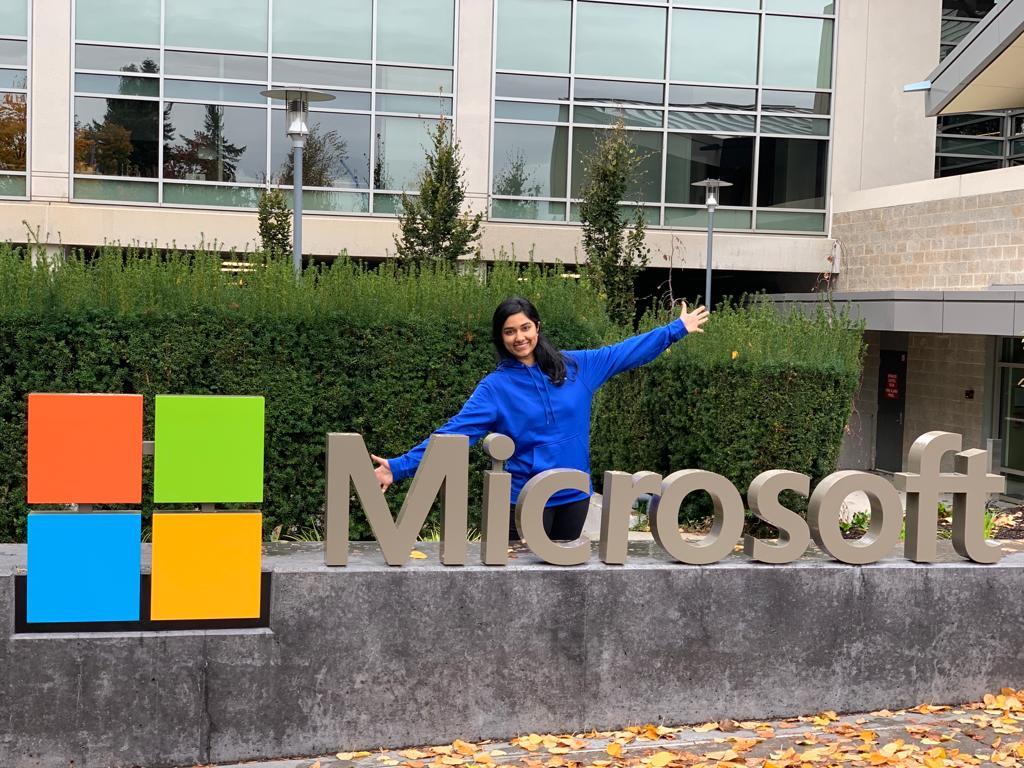Singapore-based unicorn startup Grab recently announced a strategic collaboration with Microsoft. For tech giants like Microsoft, Southeast Asia’s rapid tech growth presents an exciting opportunity for expansion. Roughly 51% of the region’s population are active internet users. Southeast Asia boasts a tech economy currently worth $50 billion, which is expected to increase fourfold by 2025.
For Deepika Mahankali, a Microsoft APAC regional business growth manager, keeping an eye on Southeast Asia’s growth is her everyday job. But it was her MBA that drew her to the region in the first place and gave her the springboard into this thriving digital economy.
Switching from tech to business
Deepika’s fascination with tech started at school, when she decided to earn her bachelor’s in computer science. She jumped straight into a role at Cisco, a cutting-edge internet of things company, where she was working in network security in Bengaluru, India’s Silicon Valley. But her focus was too tech-niche, and she wanted to expand her knowledge.
“I was mainly focused on one part of the business and one solution—security—and I wanted to broaden my skillset to know what else would be required to run a business like this,” Deepika remembers. What she sought was an overview of business—a generalist approach that would complement her tech skills and allow her to progress further in a tech company. “At a certain point, I realized an MBA would be ideal for me because that would help me take my career to the next level and make a career switch,” she notes.
Building new businesses
The MBA program at Asia School of Business (ASB) in Kuala Lumpur offered the perfect balance of a general management degree with exposure to tech that you would rarely find in another top program. In particular, she raves about the opportunity to get hands-on experience working with technology. “I never thought I would be learning coding and app development during my MBA,” she says.
During one semester, MBA students get the chance to work on their own business ideas with access to the ASB resources on offer. Deepika was able to test and experiment with her own app idea and build a prototype. “The MBA helped us step into careers, not just in business, but in digital business,” she stresses.
Learning through projects
The tech specialization was also backed up by the rigorous experience that all MBA students get through the Action Learning Program—five real-world consulting projects over the course of the program. Primarily, the breadth of experience was incredibly beneficial to Deepika. Working in everything from telecommunications at Maxis to fast-moving consumer goods at Nestle, she accumulated a variety of experiences and situations that have helped build her business profile.
“In interviews [in situational judgment scenarios], I had so many examples from the Action Learning projects that I could relate back to and share, to show how I handled certain situations,” she mentions. In addition, she gained experience working in various countries around Southeast Asia, seeing how they do business and understanding cultural norms and niches.
This forms a big part of her job at Microsoft. “Now, when I’m working in different countries in APAC, I have a good understanding of their cultural emphasis on business, which really makes a difference. This is something you wouldn’t get by just sitting in class and listening to your lectures.”
Eye toward the future
With her eye keenly set on tech, Deepika never had any doubts about staying in Southeast Asia. The ASB MBA, set in the heart of Malaysia, a fast-growing market in the region, showed her the endless possibilities in the region.
Read the full article here.
This article was originally published on BusinessBecause, a network helping MBA students make connections before, during and after their MBA.





